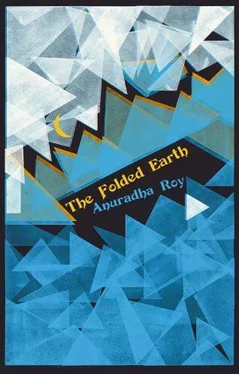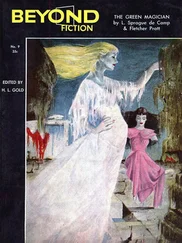I did not move a muscle and did not look at her again, willing her to carry on, to not stop trying, but suddenly the kettle’s lid began to rattle as the water for our tea started boiling. She sprang up, self-conscious. “Let me make the tea. You finish your work,” she said.
We sat down with our tea and the letter. As in each of his letters, here too Kundan asked about everyone’s health and informed Charu about Delhi’s weather. He wrote of things that had happened at the hotelier’s home, his visit to the Red Fort, an accident he had witnessed. It was only in the last page that we came to the nub of the letter. Kundan’s employers had for some time been looking for opportunities abroad. The hotel industry offered plenty. They were within reach of jobs in Singapore, where they would earn five times as much and lead a better life than in Delhi. They wanted Kundan to go with them. They had told him they did not want him to lose his livelihood. I knew Kundan’s employers actually wanted him because of his culinary skills; but surely it also meant that they thought him dependable and honest — a reassuring thought for me in relation to Charu. “They said many nice things to me,” Kundan wrote. “I felt very happy.” He too would earn a lot more, they had told him, and he would be able to pay off his father’s loan much quicker, and save for his sister’s wedding. He could come back once a year — it was not that far. They saw Singapore as something they would do for only a couple of years: we cannot dream of living away from India, they said. Singapore would give everyone some quick money and show them new sights. Kundan would never again have such an opportunity. He would fly on a plane. They would live by the sea. They would never feel hot, they had said, because Singapore was an airconditioned city, which meant that even cooks lived airconditioned.
This accounted for the photograph: it was clearly a duplicate of the one that would be stuck into his passport. Passports took a long time to be made, at least six months, so it was best to start the process right away, they had said. And of course he was free to decide not to go. He was twenty, a grown-up.
The letter did not say much more. Nothing about what he had decided or was thinking. Nothing about Charu. There were no lines of longing for the hills of Ranikhet, there was no yearning for the scent of pinewood fires or cut grass. Kundan sounded different, as if he were turning into a pragmatic, city-smart young man. It was more than half a year since they had last met.
As I read the letter, I saw Charu’s face withdrawing into the expressionless immobility in which she took refuge when she was upset. She stopped me twice, to ask what a flyover was and where Singapore was. Was it as far as Jaipur or Rampur? After I finished, she got up to leave. Her head hung low and she stumbled on a rug, not looking where she was going. I had to remind her to take her letter from me. She came back for it, but as she walked away I saw her crumpling it in her fist, along with the photograph.
* * *
That night I lay awake, thinking about dreams.
I thought about Kundan’s bosses’ dreams of more money, change, travel, the sea; that their dreams had the power to alter Kundan’s own. His family would have better lives if he earned more money. Yet his new ambitions would dash Charu’s hopes.
I thought about Veer: was it only the success of his trekking company that he dreamed of — new routes, new groups to travel with, new peaks and glaciers? What did he think in the alone hours? Who did he wake up with in his head? I wondered if he ever thought of me when we were apart. He never phoned when he was away because, he said, “Once I’m on a climb, I like the sense of being on a different planet. I zone out.”
And what about Diwan Sahib? He had been in hospital for almost a month now. Some days the doctor was gloomy about his vital signs and asked me how soon Diwan Sahib’s relatives could reach his bedside; then he came back, wheezing, gurgling, coughing up yellow phlegm. All the hours that he lay flat on his back the only thing to look at were the cracks and cobwebs in the flaking blue and yellow ceiling of the hospital room. When he was well enough to be propped up, he stared from behind the gag of his oxygen mask out of the window that overlooked a green, serene valley. Kites and eagles wheeled around in the sky it framed.
Diwan Sahib had thrust away memories of past grandeur and lived a solitary life as the local eccentric. In his final attempt to assert authority he had been insulted by a constable who would have bowed and scraped before him in the days when he was Diwan of Surajgarh. He had no children. He had burned his life’s work in a moment’s frenzy. Now gagged into silence by tubes and masks, he was in a zone more unreachable than Veer’s. When I sat by him and talked to him, his eyes sometimes changed expression, but often he shut them and turned away as if it was unbearable to be reminded of the world outside his cage. I thought of my mother in her last days with that knife under her pillow, when she had struggled with one last letter to me. The only thing she dreamed of now, she had said in the letter’s three dipping lines, was a glimpse of me, and after that, death.
I thought about Ama, who had been many times to see Diwan Sahib at the hospital. She walked the entire five miles because she wanted to save the six rupees the jeep ride would have cost. Once in the room, she perched as straight as a bamboo pole on the edge of a chair, as if sitting back comfortably would be an impropriety. She looked away when the nurse came in to turn Diwan Sahib over or attend to his oxygen mask. In that different setting, she was a stranger, a tall, bony village woman in her best going-out clothes, hair oiled and pulled back in a bun. Her expression was formal and distant. Unlike at home, she covered her head with a corner of her sari, and hardly spoke. Ama had scraped together an uncertain and tenuous living all these years, fiercely protecting her dignity and Charu’s virtue in the hope of eventual respectability through a son-in-law in a government job. There was no knowing what would happen when she found out about Kundan.
And I? How far I had come from my distant Deccan home! A bright-eyed, coffee-skinned, long-plaited girl with flowers in her hair, practising Bharatnatyam in a pink and yellow half-sari, and learning to grind dosa batter from Beni Amma on a great stone pestle — just for fun, naturally. A girl from a family as wealthy as mine would never have to sweat over a pestle grinding anything. What had I dreamed of then? I could no longer remember. And after meeting Michael, the fantasies — first of just a few hours alone with him, then a day, then every hour of every day. The usual thoughts of children and pets and home and work, all of which disintegrated when he died. What did I dream of now, if anything? I was afraid to find out.
There is only one way for people to leave Ranikhet: by road. Long-distance buses leave from two bus depots in the bazaar. The government bus depot has a cluster of shops around it: fruit shops, a barber shop, and small restaurants grimy from years of living close to badly sprung, rattling buses that spew out black, oily fumes. This is the more genteel bus stop, since the government bus staff do not feel the need to fight for custom: they get their salaries regardless of the number of passengers they pick up. At the other end of the market is the bus stop for private operators. This is loud, aggressive, sleazy. The staff there hustle people into their buses with all sorts of false promises: “Leaving in a minute! Haldwani, Rudrapur, Rampur, Moradabad, Delhi! Leaving in a minute!” Once you have bought your ticket and found a seat on the bus you might wait all the next hour while the driver yells out to passers-by, asking them to hop in. Through that hour people harangue you to buy bananas and oranges for the journey and drunks lurch up and down demanding small change.
Читать дальше












